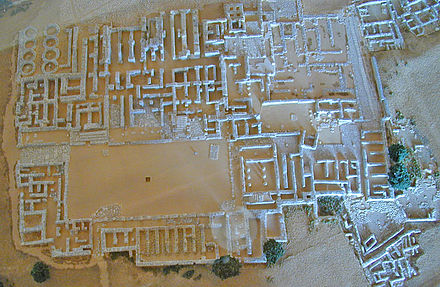Malia - town in the Heraklion regional unit, Crete, Greece
Malia is in Crete. It is 34 kilometres (21 miles) east of Heraklion, the Cretan capital city.
Understand
Modern day Malia is a holiday resort, tourism and commerce are the main economic activities in the town, with plenty of hotels, restaurants, gift shops, bars and nightclubs. Malia has become one of the most popular tourist locations of Crete, and one of the most popular in Europe, rivalling Ibiza and Magaluf. It is mainly visited by young people from the UK and Northern Europe. The prominence of Malia as one of the leading spots for nightlife in Europe is cemented by the attraction of big name DJs and events. The Main Strip is home to many bars, clubs, taverns and restaurants. This is supported by the many close by hotels and apartments in Malia and the immediate area. Malia has a fine sandy beach which starts from the bottom of the strip and continues towards the East near to the Minoan palace of Malia.
History
The palace of Malia, dating from the Middle Bronze Age, was destroyed by an earthquake during the Late Bronze Age, Knossos and other sites were also destroyed at that time. The palace was later rebuilt toward the end of the Late Bronze Age. Most of the ruins visible today date from this second period of construction. The palace features a giant central courtyard, 48 m x 23 m in size. On the south side are two sets of steps leading upwards and a maze of tiny rooms. Also here is a strange carved stone called a kernos stone, which looks like a millstone with a cup attached to the side of it. On the north side of the courtyard were storage rooms with giant earthenware pithos jars, up to two metres tall. These were used for holding grain, olive oil and other liquids; the floor of these rooms has a complex drainage system for carrying away spilled liquids.
Get in
Get around
See

Do

Buy
Eat
Drink
Sleep
- Alexander Beach Hotel & Village, 35.2913°, 25.4457°, info@alexander-beach.com. 2015-05-07
- Hotel High Beach, 35.2929°, 25.4615°, +30 28970 32783-4, info@highbeach.gr. 4 star hotel, located 800 m from the town centre. 2015-05-07
Connect
Go next
Malia
Postal code:70007Date Time:Please wait...Timezone:Europe/AthensPopulation:3,224Coordinates:35.28, 25.46
Heraklion Regional Unit
2nd-order administrative division
Crete
Primary administrative division